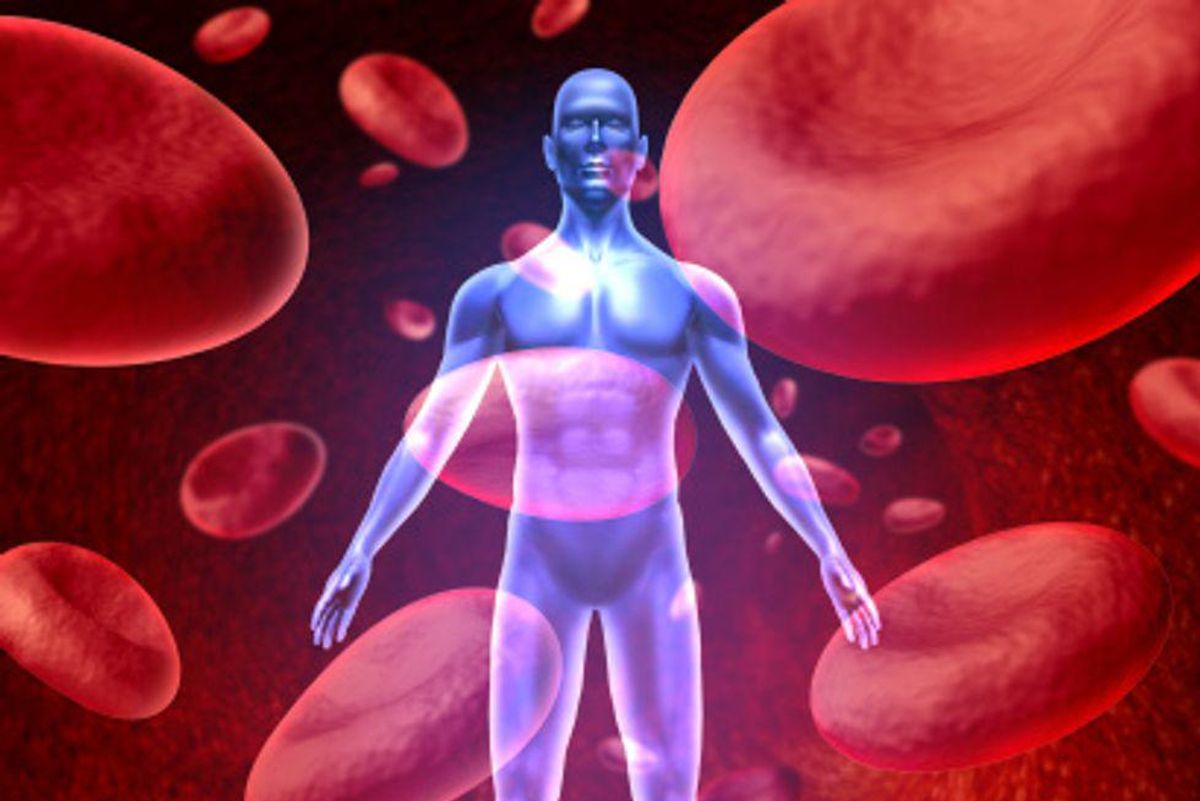While watching the Today Show last week, I was jolted into that familiar feeling of "Huh? Where has the time gone?" when it was reported that next month marks 10 years since the sudden and tragic death of 39-year-old journalist David Bloom. Ten years! I remember hearing the news back then—although if you asked me how long ago it was, I would have said maybe two or three years—that while on assignment in Iraq, Bloom died of a pulmonary embolism, originating as deep vein thrombosis. The words were foreign to me and I wondered what it was all about.
But I never dug that deeply. That was before I started writing about health.
Now I feel both a curiosity and obligation to my readers to report on this serious condition that is a major health threat. Deep vein thrombosis (DVT) occurs when a blood clot forms in a large vein. What happens next can be serious or even life threatening: part of the clot may break off and travel to your lungs, causing a pulmonary embolism (PE).
DVT and PE are major health problems in the United States. It's estimated that between 300,000 to 600,000 Americans have these conditions each year and that 60,000 to 100,000 die as a result. Aside from that, many people who have either condition suffer from complications that have a great impact on their health and quality of life.
Since the condition is potentially life threatening, it's important to know:
Symptoms of DVT (Note: Not everyone will experience symptoms. When they're present, they may include the following):
- Swelling (sometimes sudden) of the arm or leg
- Pain or tenderness in the leg (may only be felt when standing or walking)
- Increased warmth or pain in the area of the swollen arm or leg
- Skin redness or discoloration
- (Superficial) vein enlargement in the affected arm or leg
Symptoms of PE
- Sudden shortness of breath
- Sharp chest pain (often made worse by moving or coughing)
- Back pain
- Cough
- Excessive perspiration
- Rapid pulse
- Rapid breathing
- Lightheadedness or fainting
MORE: Injury-Proof Yourself for Effective Exercise
Are You at Risk?
Although David Bloom was young and otherwise healthy, his DVT occurred because of prolonged immobility. That's akin to sitting too much, which can also have serious effects on your health. A few other factors contributed to his DVT: dehydration and an inherited blood coagulant disorder called Factor V Leiden.
Other Risk Factors
Major surgery
Recent injury
Increased estrogen from birth control pills, pregnancy and certain medications
Previous DVT
Age (risk rises with increased age)
Obesity
Smoking
Preventing DVT
Prevention, as the saying goes, is the best medicine. Here are some tips for preventing DVT:
- If you're confined to a bed, get moving as soon as possible.
- If you sit for long periods, get up and walk around every two to three hours.
- If you can't get up (let's say you're on a long flight that has the “fasten seat belt" sign lit), exercise your legs by raising and lowering your heels while keeping your toes on the floor or tightening and releasing your leg muscles.
- Wear loose-fitting clothing.
- Stay hydrated; avoid alcohol or caffeine.
- Exercise regularly.
- Maintain a healthy weight.
- If you smoke, quit.
What if You Have Risk Factors for DVT?
Aside from following the above suggestions, you might want to consider wearing compression stockings, especially when you travel or will be sitting for prolonged periods. Also, talk to your health care provider about certain medications (like anticoagulants) that may help prevent the condition.






